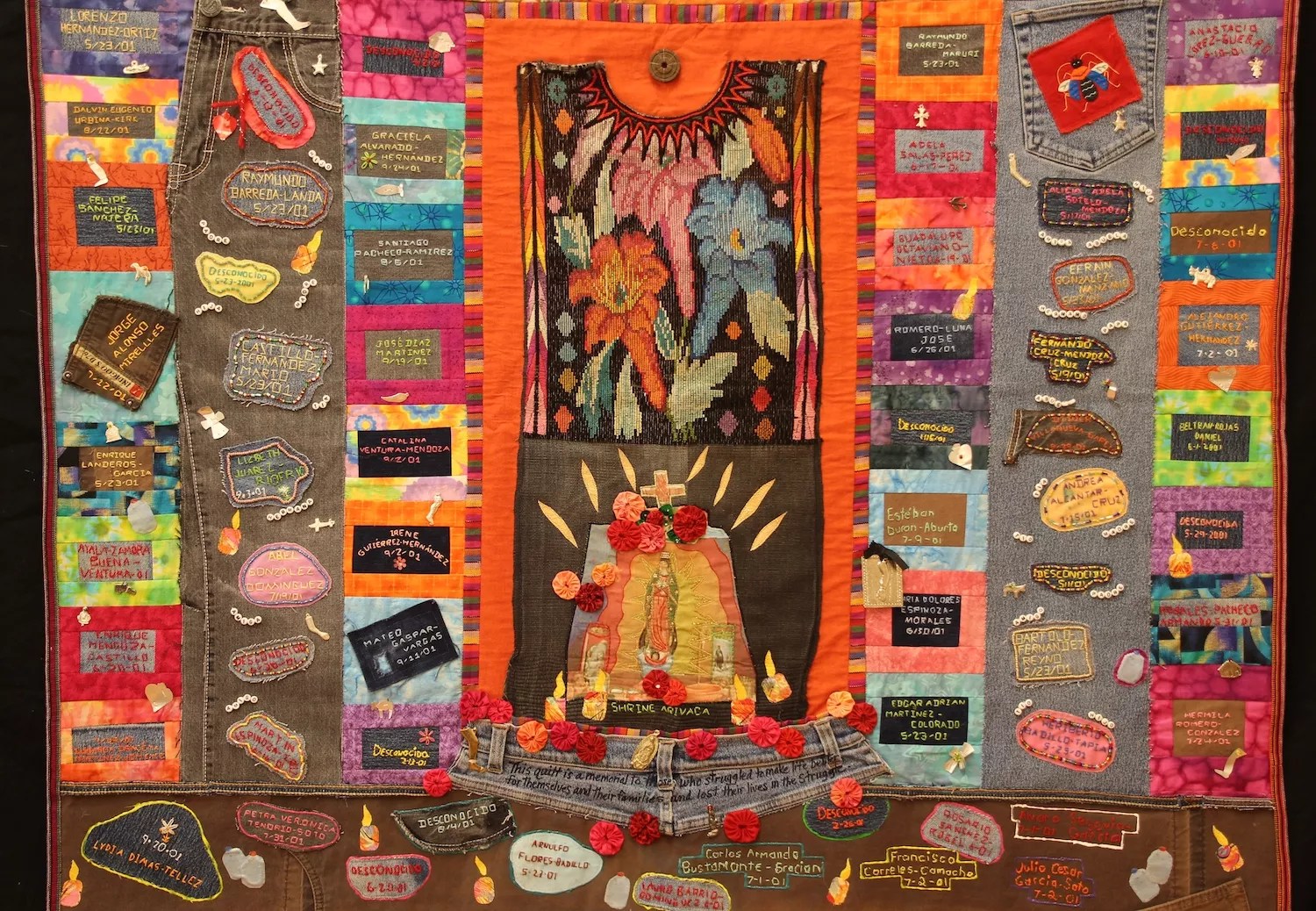
Migrant Quilt Project

Audio By Carbonatix
More than a decade ago, Jody Ipsen went on a camping trip that changed her life.
While backpacking in the Huachuca Mountains southeast of Tucson in 2005, she came across myriad items left behind by people who’d crossed the border from Mexico to enter the United States. They included everything from baby bottles to backpacks.
“I realized people were crossing, but I didn’t realize to what extent,” Ipsen says.
She discovered that migrants had lay-up sites, or temporary camping sites where they’d stay a night or so during their travels north.
“At first I was appalled, but then it piqued my interest,” she says. “I started to wonder that was going on.”
Today she’s the coordinator for the Migrant Quilt Project, a group of women who make quilts honoring migrants who’ve died during desert crossings.
She started the project back in 2007, after volunteering with several migrant support organizations and feeling compelled to do something more.
More than a dozen of these quilts are part of an exhibit called “What the Eye Doesn’t See Doesn’t Move the Heart,” which is on view through Friday, September 22, inside the community room at Tempe History Museum.
Once that closes, organizers will show various quilts from the project, first launched in Tucson in 2007, at the Arizona History Museum in Tucson.
“I realized that creating something would be a good way to memorialize and represent the people who can’t speak for themselves,” Ipsen says.
“With art we’re not directly confronting people, but we can reach them on a very visceral level…”
The quilts include scraps of clothing and other items discarded by migrants, often after they’re picked up by border authorities.
They’re made by various artists who support the project’s mission of helping people realize the human toll of harsh borderlands and punitive public policy.
For Ipsen, the border isn’t a place for dividing people. It’s a fluid space filled with rich exchanges of friendship, food, and various goods.
She grew up in Arizona, along its southern border.
“Since I was a child we would go to Nogales to buy sugar, flour, and other items,” she says. One of seven children in a poor family, Ipsen recalls getting her braces in Nogales. “I’ve always had this relationship with the border.”
Often, the quilts elicit powerful emotions from viewers.
“When people see the quilts en masse, they’re overwhelmed, and some even leave weeping after they realize the magnitude of the loss,” she says.
Ipsen worries that a new border wall would mean more human suffering.
“Building a wall will force more and more people into more and more hostile areas or the river, and we’ll just see more and more deaths.”
She’s convinced the flow of migration will always continue, despite heated political rhetoric. And she knows it’s a tough topic for some people to handle.
That’s were turning to art comes in.
“With art we’re not directly confronting people, but we can reach them on a very visceral level, especially when they realize that the materials came from real individuals crossing through the desert,” Ipsen says.
“We can reach a lot more people through art than through an essay.”
“What the Eye Doesn’t See Doesn’t Move the Heart” continues through Friday, September 22, at Tempe History Museum. Museum admission is free. Get details on the museum website.
Editor’s note: This post has been updated from its original version.